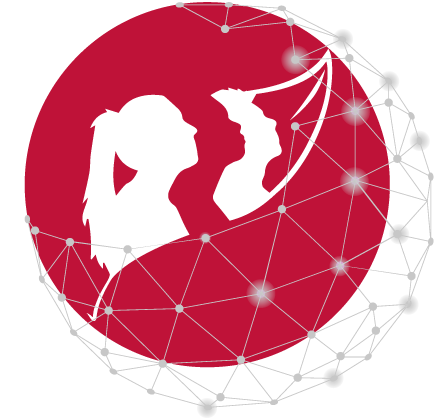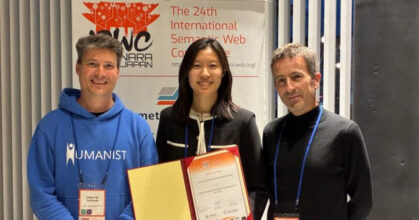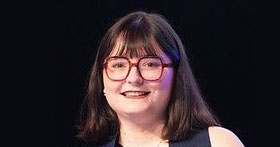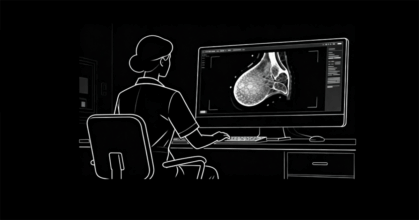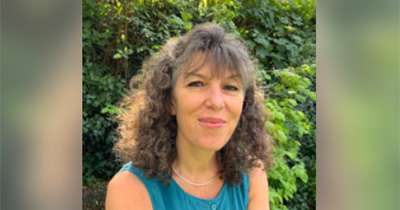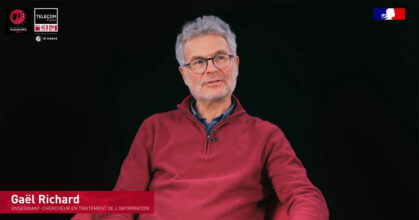It can be divided into three parts:
- Modeling content, knowledge and interactions
- Modeling networks and systems
- Modeling information and its ecosystems
In all these areas, advanced mathematical models are developed to effectively represent a complex reality and make the best use of it.
The two current challenges in this area are finding the right compromise between remaining faithful to reality and the effectiveness of the model (usability, computability, suitability for needs), and the ability to address problems with a high level of complexity, involving heterogeneous data, which may be massive or have gaps, involve poorly understood uncertainties or needs for explosive computing or involve complex reasoning.
Research
Whether focusing on data or knowledge, mathematical modeling aims to understand and facilitate simplification, representation, visualization and mediation between people and devices. This can include the modeling of distributed systems, interactions between humans, agents and computers, probabilistic modeling, logically structured modeling of knowledge, geometric or topological modeling of complex objects etc.
Modeling is transdisciplinary as it transcends the distinctions between different fields of research. As such, at Télécom Paris, researchers are as likely to work on modeling communication systems, sensor networks, visual signals (image, video, 3D) or interactions between electromagnetic waves and the human body, as they are to work on modeling emotions or social phenomena.
Applications
Whether focusing on electronic circuits, optical systems, images, signals or 3D objects, or complex software, large networks, business models, human beings, concept etc. modeling can be defined as a way to reduce the complexity of the world to something that can be traced.
The use of mathematical tools makes it possible to solve a great number of application-related problems, such as information leaks in cryptographic embedded systems, Man-Computer interaction, the ways in which the human brain functions and ways to represent online communities.
Engineering training
Engineering cycle
The Random Modeling and Scientific Computing study track is based on applied mathematics, in particular in the fields of random modeling and scientific computing.
There are a wide range of applications in fields such as financial mathematics, data science, networks, signal and image processing and modeling. Program graduates find employment in technological companies or the financial industry and may choose to continue their studies by completing a PhD, whether in the form of an academic thesis or through an industrial project (CIFRE thesis).
The Image study track includes a number of aspects of mathematical modeling, whether modeling image acquisition, the properties of these images (in terms of geometry, noise etc.), modeling image content (appearance, texture, form, scene structure) or the knowledge used to interpret images.
Image analysis methods therefore have mathematical foundations which cover a wide range of fields (probability and statistics, variational analysis and approaches, graphs and more generally discrete mathematics, algebra and topology, logic etc.) Employment opportunities are numerous, whether in industry R&D teams or in the academic world.
Master’s Degrees
Télécom Paris participates in four Master’s programs in the field of mathematical modeling, delivered by Université Paris-Saclay:
- Financial mathematics with École polytechnique
- Mathematics of Randomness
- Design
- Modeling and Architecture of Complex Industrial Systems
- Mathematics, Vision and Learning
as well as a Master’s in Statistics and Random Models in Finance with Université Paris-Diderot.
In addition, a number of Master’s degrees in computer science and AI include courses with a strong mathematical component.
Executive Education
Télécom Paris Executive Education develops and provides innovative continuing training solutions, drawing on the educational expertise of Télécom Paris. Our certificate programs are available through inter-company training or can be tailor-made to suit your needs. What sets our training apart is its focus on the real needs of today’s businesses. This is made possible through Télécom Évolution’s close collaboration with industry.
Télécom Évolution offers a number of training courses involving modeling skills, in particular in the field of telecommunications.
Latest news

Best Paper Award at Int'l Semantic Web Conference
PhD, Faculty Members, Modeling — 16/02/2026Y. Peng, Th. Bonald, and F. Suchanek receive a Best Paper Award for their paper “FLORA: Unsupervised Knowledge [...]
Smartphone Circular Economy & Buy-Back Policies
PhD, Digital Economy, Modeling — 26/01/2026In her PhD thesis, Tiphaine George develops an innovative mathematical model of the circular economy of smartphones.
[Ideas] Artificial intelligence for 3D mammography
PhD, Data Science & AI, Modeling — 19/01/2026Arnaud Quillent: how AI can improve the quality of medical images and boost clinicians' confidence in these new [...]
Florence Tupin distinguished by IEEE Geoscience and Remote Sensing Society
Faculty Members, Modeling — 27/03/2025She develops innovative image processing and analysis methods, with recognised expertise in [...]
[Ideas] Sound revolution and machine listening
Data Science & AI, Faculty Members, Modeling — 14/03/2025Gaël Richard, "Hi-Audio": How does the machine learn to listen and create?
